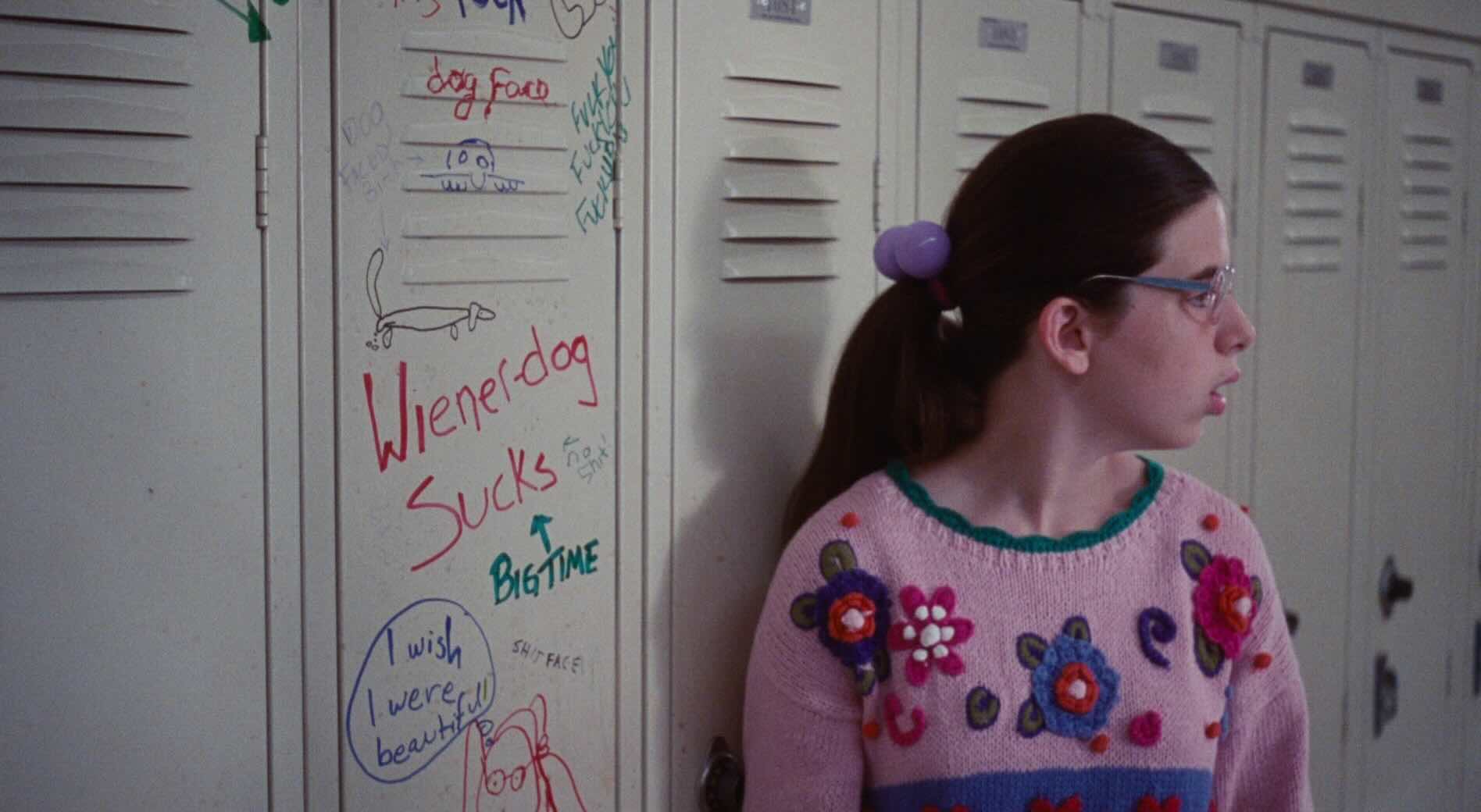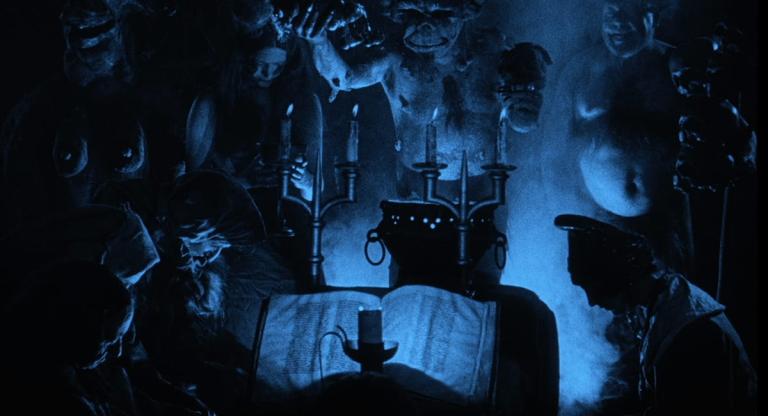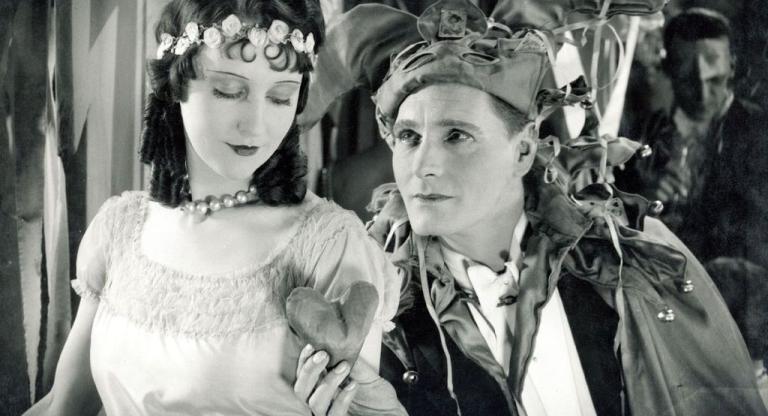Dawn Wieners (Heather Matarazzo)—known as “lesbo” or “wiener dog” by her middle school classmates—is a 12 year-old outcast looking for acceptance in the worst of places: the American suburbs. Dawn’s coming-of-age is more like a coming-to-terms with not being beautiful when the world around her seems to value nothing else. Rather than accept insignificance she attempts to inject some pride into her misfit status, turning a shabby structure in her backyard into the headquarters of her “Special People Club.” Sitting in the clubhouse with her only friend, fellow freak Ralphy (Dimitri DeFresco), Dawn watches her adorable younger sister Missy dance and complains that she’ll always have it easy. He deadpans, “maybe she’ll die.” Solondz isn’t one for hopeful, feel-good messages in his films, but this hilarious line offers a way to cope with not having the gift of good looks in American society. Death, at least, does not discriminate.
Solondz’s Welcome to the Dollhouse (1995) has all of his signature discomforting motifs: characters whose lack of politeness or beauty marginalizes them, a close-look at the corrosive effects of alienation, and plots full of taboos that are meant to make audiences unsure as to whether they should laugh or cry. Dawn lives under her father’s silent disapproval and her mother’s blatant favoritism toward her sister; her siblings make no effort to understand her. Classmates relentlessly tease her and authority figures do little to intervene. When her older brother’s band gets a hunky lead singer, Steve (Eric Mabius), Dawn becomes instantly smitten. Later, when Dawn is left in charge of young Missy, she makes a hasty decision that leaves her waiting for a ride home from ballet practice all alone. This results in Missy getting kidnapped by a pedophile—this is Solondz afterall. She takes a bus to New York in search of Missy, hoping to become a hero; the audience sees a montage of Dawn’s dream, in which her parents and peers declare their love for her. Dawn is no saint, she’s often perpetuating her own cycles of abuse upon others, but they’re a heartbreaking reminder that she just wants to be loved.
Welcome to the Dollhouse is a film full of heart, but it’s not a happy one. Dawn’s desire for love is thwarted by Steve, who rejects her invitation to join the Special People Club. He destroys her hope that being a special person could mean being a cool one, pointing out that it’s an embarrassing thing to brand oneself as. The film captures the scale of what’s important to a prepubescent girl, as only in the mind of a child could “my sister was kidnapped” be a small statement and “I want to be your girlfriend” a huge one. Dawn never overcomes the limits of her looks and Steve’s cruel rejection affirms her naïveté in thinking she could. With this honest portrait, Solondz confronts the viewer with the strangeness of growing up made exponentially harder in a society where “special people” means the opposite.
Welcome to the Dollhouse screens Tuesday, April 9, and Tuesday, April 16, on 35mm at the Roxie as part of “Rewind Presents.” A solo performance by the band Double Helix Peace Treaty will accompany the screening.






